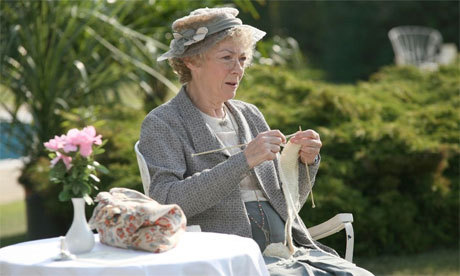As an ardent fan of detective fiction, I have often wondered how amateur detectives manage to outdo police officers every time., Have you noticed how private detectives, whether professional or amateurs, manage to stay one step ahead of local police?
I first encountered this as a child, in Enid Blyton’s Five Find Outers mystery series. In these books, a group of five children manage to find out the solution to various mysteries long before Mr. Goon, the local policeman, can even begin to figure it out.
This pattern can be seen in the Sherlock Holmes stories. Arthur Conan Doyle’s world famous sleuth Holmes, aided by Dr..Watson, manages to solve the most inexplicable crimes with comparative ease. All the while, police officer Lestrade is clueless but quick to take credit for the solution which Holmes usually hands to him on a plate.

Agatha Christie created two detective characters, Miss Marple and Hercule Poirot. Miss Marple, an elderly spionster living in rural England manages to solve the most difficult of crimes. She draws upon her close observation of people n her village. Her study of human nature allows her to solve crimes that leave officers like Inspector Nash and Inspector Craddock baffled.

Poirot uses the same technique but in a more “scientific manner’. He uses his knowledge of human psychology to catch murderers, burglars and fraudsters. Christie casts Inspector Japp as a slow witted police officer who reluctantly accepts Poirot’s help.

Although you want the private sleuth to succeed, you can’t help wondering why the authors portray the police as less intelligent. The most important reason may be that it s a formula that sells. Readers enjoy amateurs getting the better of professionals.
Looking at the situation objectively, you must admit that polioce officials are hampered by certain handicaps.
- the amateur sleuth usually works on only one case/problem at a time. Police officers have lots of work at any given time. The sheer volume of their work mkes them unable to give all their attention to one particular case the way amateurs can.
- for police officials, solving crimes is a job. It is something that they have to do per force every day. The amateur, however, addresses problems with a passion.
- witnesses are more likely to open up to a private individual whereas they are wary of the police.
Whatever the reason for their success, we are always ready to cheer private individuals in their crime solving. Why do you think authors have developed this pattern?
Do drop a line in the comments section below and tell me your views.
Please remember to comment, like, follow and share.
Images courtesy Pixabay
You might also like:



Well, it’s fiction. But yes, there’s always a gimmick, such as a psychic power or maybe the protagonist was a cop or has a special way of talking to people as you mentioned. In one of my favorite detective series, Archy McNally is a super smart guy who got kicked out of law school for being a prankster, and he works closely with cops and others on crimes, but since he’s the star he always solves them. It’s a fun series.
LikeLiked by 1 person
Is this detective series a show or a book.
It reminds me of a T.V series called Monk where an ex cop helps the police and does a better job than them.
Christie’s Poirot is a retired cop too.
Thanks for reading and commenting.
LikeLike
I loved Enid’s books as a child. Happy to see she is still remembered!
LikeLiked by 1 person
I grew up on her books too. The fairy stories, the school stories and the mysteries. I loved them all.
Thanks for stopping by.
LikeLiked by 1 person